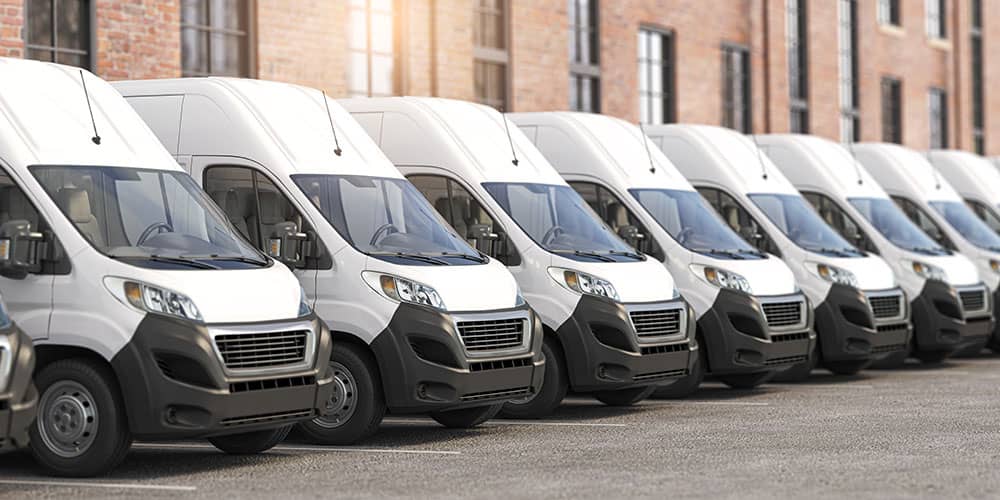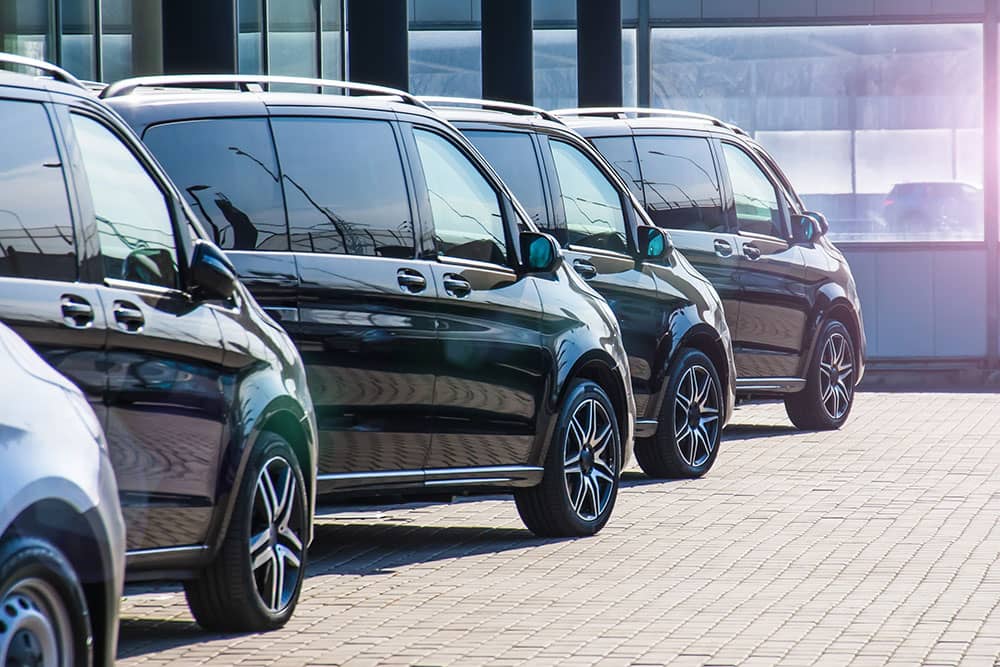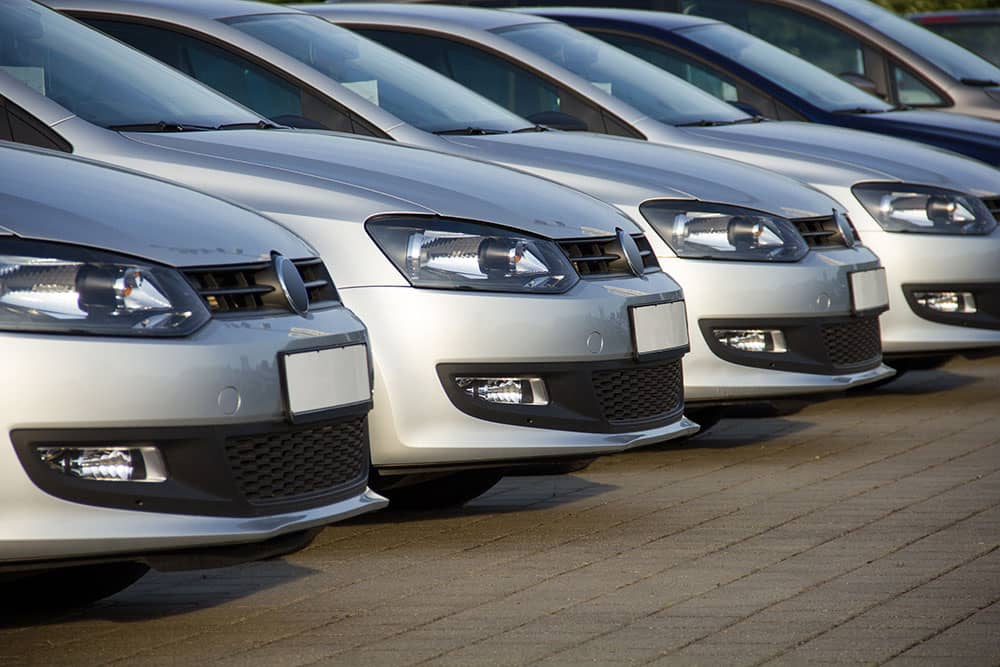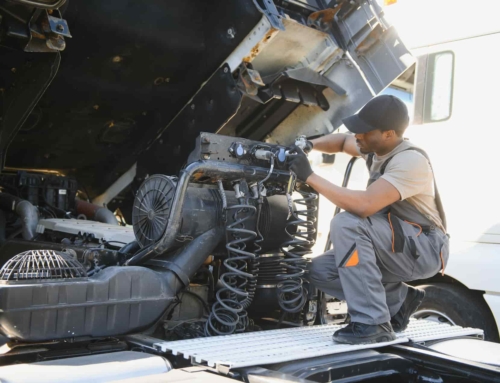During your time in business, you have likely had the pleasure of seeing your company grow. Now you have a fleet of commercial vehicles and drivers under your wing. You have a lot to be proud of and even more concerns on your mind.
Consider the fact that around 87 per cent (or 9 out of 10) of businesses admit that a significant insurance claim has the potential to put them out of business. However, an estimated 62 per cent of companies either have the wrong insurance or do not have enough insurance. That information is reason enough to take a better look at your commercial fleet insurance.
What is Commercial Fleet Insurance?
Commercial fleet insurance is the cover you carry for the vehicles that you need to operate your business (such as taxis, rentals, couriers, chauffeurs, etc.). Typically, a fleet consists of a minimum of two vehicles. However, some insurance companies will consider ten or more vehicles eligible for a discounted rate for fleet insurance.
Many people think of a fleet being delivery vehicles or big rigs that travel coast to coast. However, a fleet can be a combination of different kinds of vehicles. If the vehicle is necessary for your business, it can be a part of your fleet. This includes but is not limited to,
- Cars
- Vans
- Trucks
- Forklifts
- Trailers
Who Needs Commercial Fleet Insurance?
It is in your best interest to keep your business insurance and personal insurance separate as a business owner. Doing so means that you do not need to worry about gaps in your coverage.
*For Example*
You own a floral shoppe and deliver flowers with your personal car. If you are involved in an accident while using your car to deliver flowers, you stand a chance of having your claim denied because the car has insurance through your name and not your company’s name.
If you own and operate a fleet of vehicles, you need to list your company as the owner and carry commercial fleet insurance. Doing so will prevent the unwelcome news that your claim is denied because your personal car was being used for work.
What Can Commercial Fleet Insurance Cover?
Your commercial fleet insurance policy can cover a variety of situations. Aside from accidents that happen on the road, your policy can cover,
- Company cars used by employees for leisure, as long as your company is listed as the owner of the car
- Long haul freight lorries
- Food trucks at festivals
- Vehicles designed for off-road use provided they are company-owned
- Parts of your fleet damaged while not in use due to an accident on the premises where you are storing them
- Vehicles involved in warehouse accidents
- Accidents where you or your drivers are at fault
Levels of Cover with Commercial Fleet Insurance
Typically, there are three levels of coverage for commercial fleet insurance.
Comprehensive Insurance Coverage
Even though comprehensive coverage is the most expensive type of commercial fleet insurance, it also will offer you the most protection. Specifics can vary depending on your policy. However, this policy typically compensates for
- Your own- or third-party vehicles
- Any injuries to you, your passengers and third parties
Both circumstances are from a fault or non-fault accident.
Third-Party Fire and Theft Coverage
A third-party fire and theft policy is a mid-range priced policy. It will cover damages and losses to third parties and their property. Additionally, it will cover for losses you sustain because of theft or fire.
Third-Party Only Coverage
The third-party only insurance cover is usually the least expensive type of insurance. However, you need to remember that the third-party only cover will only take care of
- Damage to third parties
- The damage to other people’s property or vehicles
- Any injuries to others
- Any injuries to your passengers
You will not receive compensation for damage to your property with this level of insurance coverage. Even though you will pay the least to have this cover, you must determine if you can afford to repair or replace your property if it is damaged.
Essential Tips to Get the Most Out of Your Commercial Fleet Insurance
- Review your policy carefully and be sure that any add-on for equipment or personal items have been noted.
- Talk to an insurance professional about making your policy an ‘any driver’ policy or a ‘named driver’ policy.
- One may benefit your circumstance more than the other
- Check your liability limits frequently.
- Add new drivers to your policy as soon as possible and remove drivers who no longer work for your company.
- Good driving and proper training may reduce your rates.
Having the wrong insurance or not having enough insurance can both be potentially disastrous for a business. You rely on numerous drivers with your fleet. This allows for multiple unforeseen situations. Can your present insurance cover protect your company from the many potential mishaps? Contact Grace Insurance and speak with one of our experts in commercial fleet insurance. You can have the peace of mind that comes from knowing you are prepared and protected.








